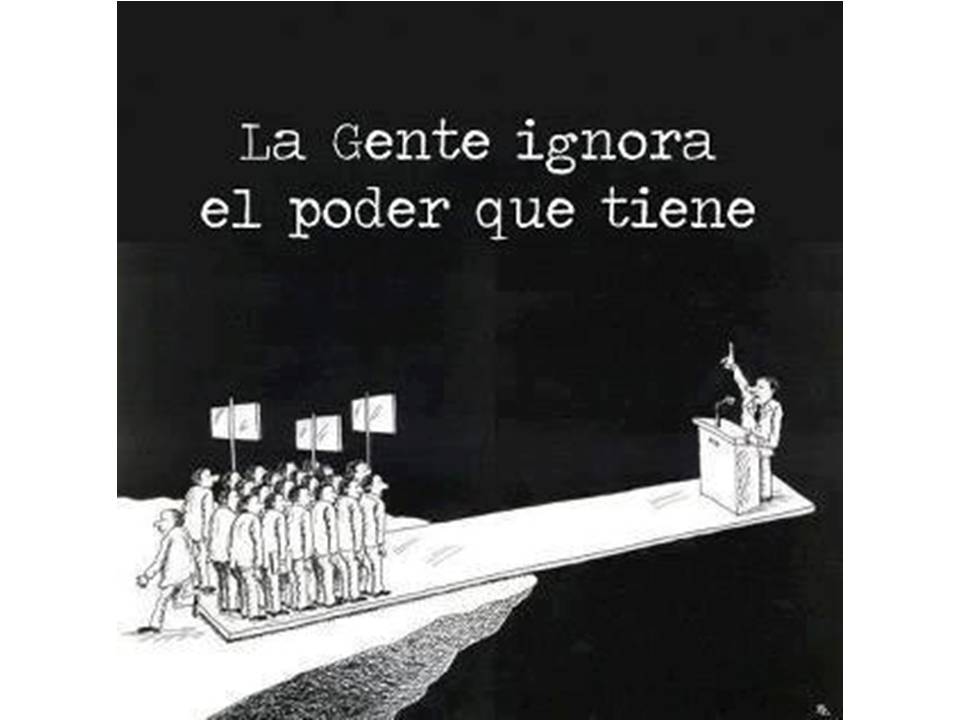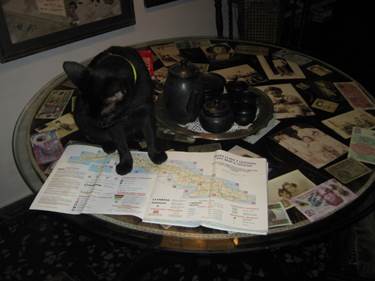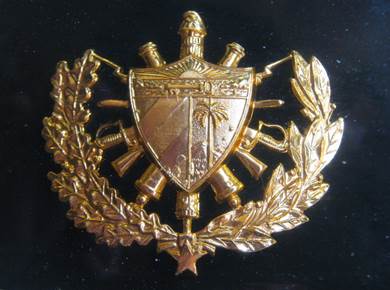
Jeovany Jimenez Vega, 11 July 2019 — In the last few days we have seen the crystallisation of the Cuban government’s posture on the use of social media and websites in our country. The authorities in Havana have decided that from now on they will regulate even more closely the activity in these sites by way of legislation sanctioning anyone who, in accordance with official criteria, tries, by way of social media, or web sites, “… to spread, using public data transmission networks, information contrary to social or moral interest, good custom, or the integrity of any person …”, and, at the same time, prohibits the operation of any site whose primary server functions outside Cuba, with a penalty of up to 1000 CUP.
The controversial measures announced by the Ministry of Communications had already leaked out, to “authorise” — for which read “limit” or “control” — SNet, the extensive offline medium which has operated clandestinely for years in Cuba. The Ministry will limit the maximum power of its equipment to 100 milliwatts, which in practice would imply its eventual collapse. If on top of that we now add the new prohibition on freely putting anything out “contrary to social interest …” — which is a catch-all for just about anything — from public media, we begin to see la mano peluda [the dismembered hairy hand, which is a famous Mexican horror image] behind the cradle. continue reading
These measures reveal the evident terror, which has sprung up in the Cuban regime, of the power of the media to mobilise and speak out, and demonstrate perfectly clearly why they have done, and continue to do, everything they can to set back the penetration of the internet in our country, and imposing, one step at a time, the strictest censorship, maintaining a systematic domestic intelligence on what information is entering or leaving Cuba; and all of this on the basis of pricing which is prohibitive for ordinary Cubans.
Although the Havana oligarchs are fearful of a potential tropical version of the Arab Spring, without doubt they are aware that a North Korean style model of cyber control is a bit over the top in our context since it would be very disturbing for a tourism industry in evident decline and would lead to perpetual awkward protests in many virtual and physical forums. Because of that, the guys from the Plaza [La Plaza de la Revolucion, Havana – where many political rallies take place] have opted for an alternative, less contentious, strategy of containment, but one which is nearly as efficient as that model.
With this alternative version, the Castro dictatorship has opted for a mixture, which varies with whatever tactical necessity, of a Beijing type totalitarianism and a Stalinist practice, which is by no means extinct, with the unmistakable signature of the KGB: systematic censorship using aggressive commentators, and the perpetual use of legions of trolls, cleverly combined with physical repression of activist dissidents and the independent press, such as by the use of laws which severely punish “crimes” which are just rights vetoed by a police state.
And, although the potential of social media in Cuba has not yet been more than hinted at, it’s quite enough for some shit to hit the panic button in the reactionary Politburo of the Central Committee and the cold offices of its despicable political police, which is where, without doubt, they are better able to assess the situation , because it is where they are better informed about the general frustration felt in the street, and the real extent of the hatred felt by the Cuban people for those responsible for their misrule and subjugation.
Nevertheless, up to now, we hardly attend the habitual complaints of arbitrary raids and constant short-term arrests, the pitiless deluge of taunts against General “Jutía” Frías rambling on like an old idiot about ostriches [Comandante de la Revolucion who, in the face of Cuban food shortages, said “let them eat ostriches”, or the repeated messages under the hashtag #BajenLosPreciosDeInternet denouncing the monopolistic abuses of ETECSA (the state telecoms company), among other nonsense and excesses.
Although the consequences haven’t always been virtual: we were also witnesses to how, on 12th of May last, the social media were the determining factor in the irreverent mobilisation of the LGBTI community in Havana, which resulted in a scandalous, and definitely physical, repressive operation organised by the State Security in the Paseo de Prado, and this still has a bad smell. It looks like we are all up to here with authorities who are completely unwilling to tolerate any disagreement, whether physical or virtual.
There are various indications which show that the Cuban dictatorship continues to be stuck in the ’60’s: the recent imposition of Law 349 which, even when it has been watered down, seriously limits creative freedom, or the amendment imposed to the recently-approved Cinema Law, which will be the mano peluda (see the above translator’s note) which will, at the end of the day, authorise such licences. Although all that intransigence could be more clearly seen summed up in the embarrassing harangue that Diaz-Canel gave on the eve of the the UNEAC Congress — virtually a carbon copy of Fidel Castro’s notorious “Words to the intellectuals“, seen by many as a veiled threat.
Although, in reality, what is coming up now has been practised before by the regime and widely known and suffered by the dissidents. The only thing new here is the official advert, and as this site operates out of WordPress, a platform whose servers are of course not in Cuba, I could not turn a deaf ear, after which there is nothing much more to add.
My last words will, therefore, be brief — and I hope will be well understood by everyone who commits cyber identity theft, and every repressor: this humble blog is a space for free thought, in which I exercise my human right to express my sincerely-held opinions, and no tyrant has any authority over that. This site will stay open and active as long as there is a de facto power in my country which violates the civil, political, economic, social and cultural rights of my people.
Right now I am living temporarily outside of Cuba, but when I return, and I will definitely, if there is still this unfair regulation in place, I will not let it crush me, and every word I have said here I will keep to against all banners. The person who administers Ciudadano Cero (that is, this blog) is ready to defend his right to express his opinion, from wherever, regardless of the consequences.
Ah! … and on that subject: I, like Jose Daniel Ferrer, dont pay fines either
Translated by GH

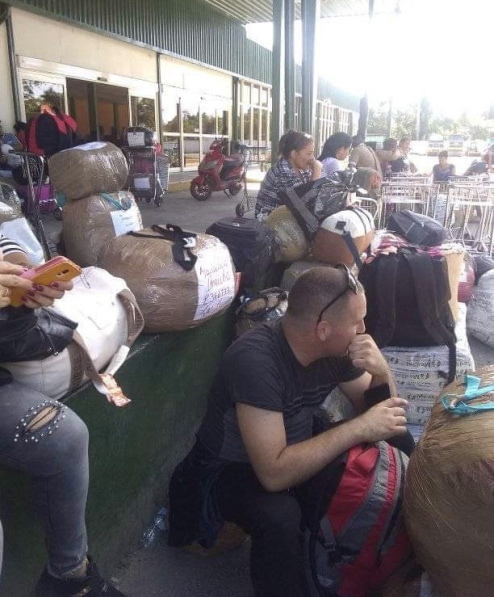

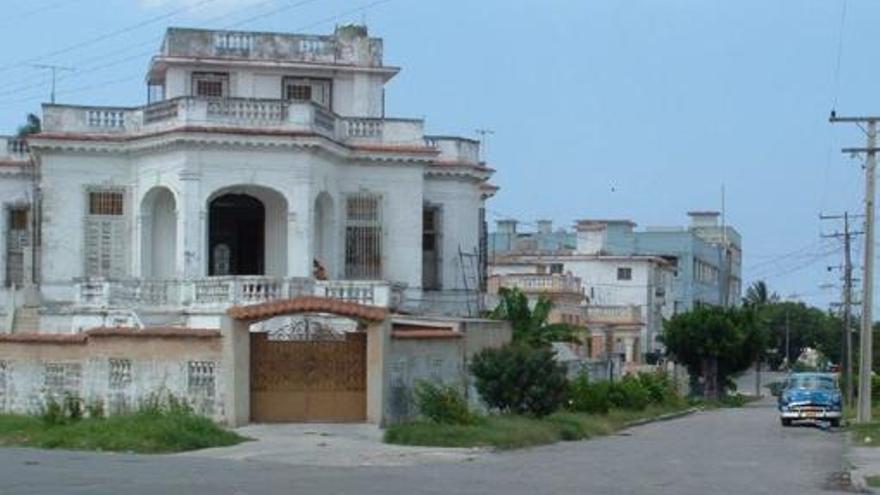



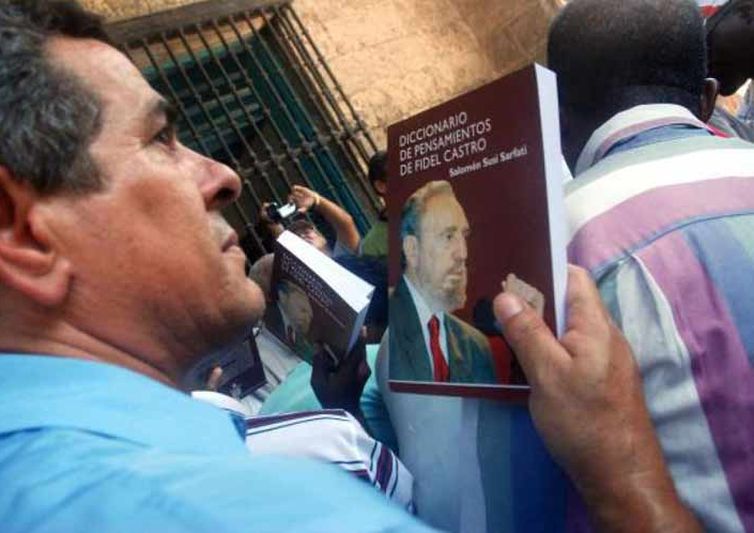
 Ángel Santiesteban
Ángel Santiesteban
 (Adalberto Roque / AFP)
(Adalberto Roque / AFP)